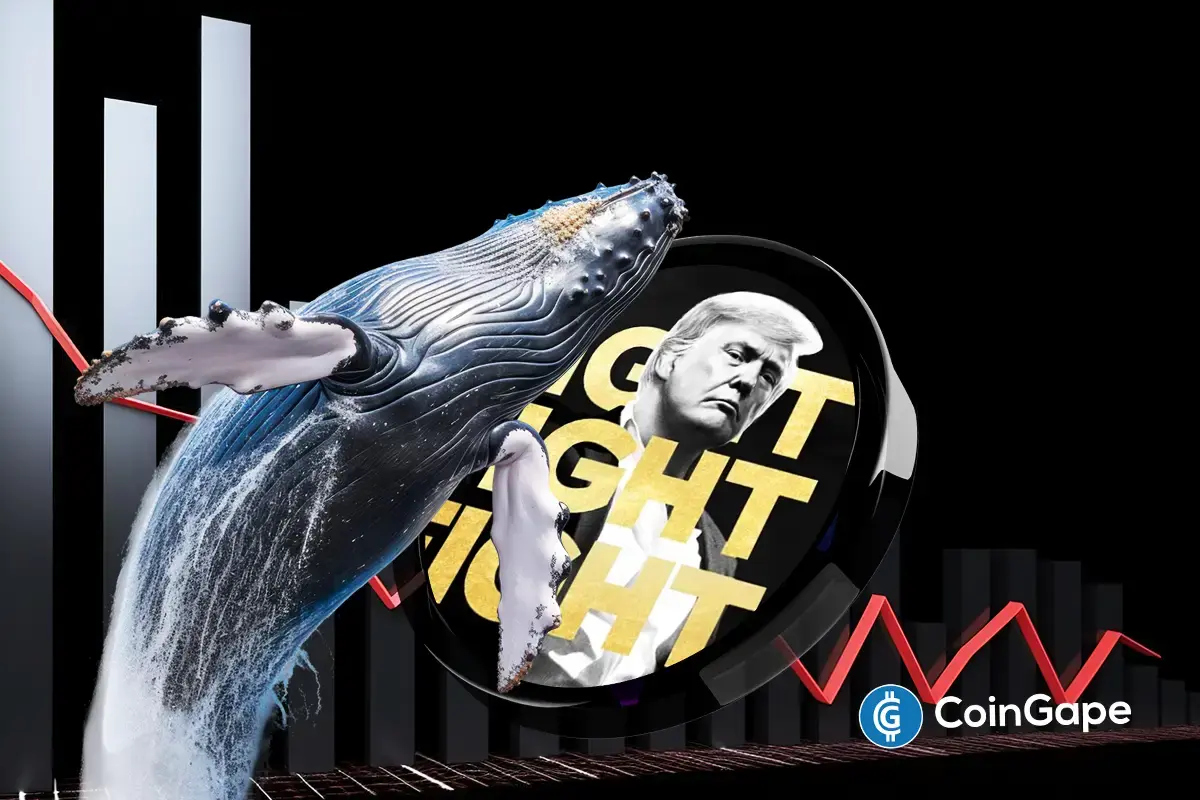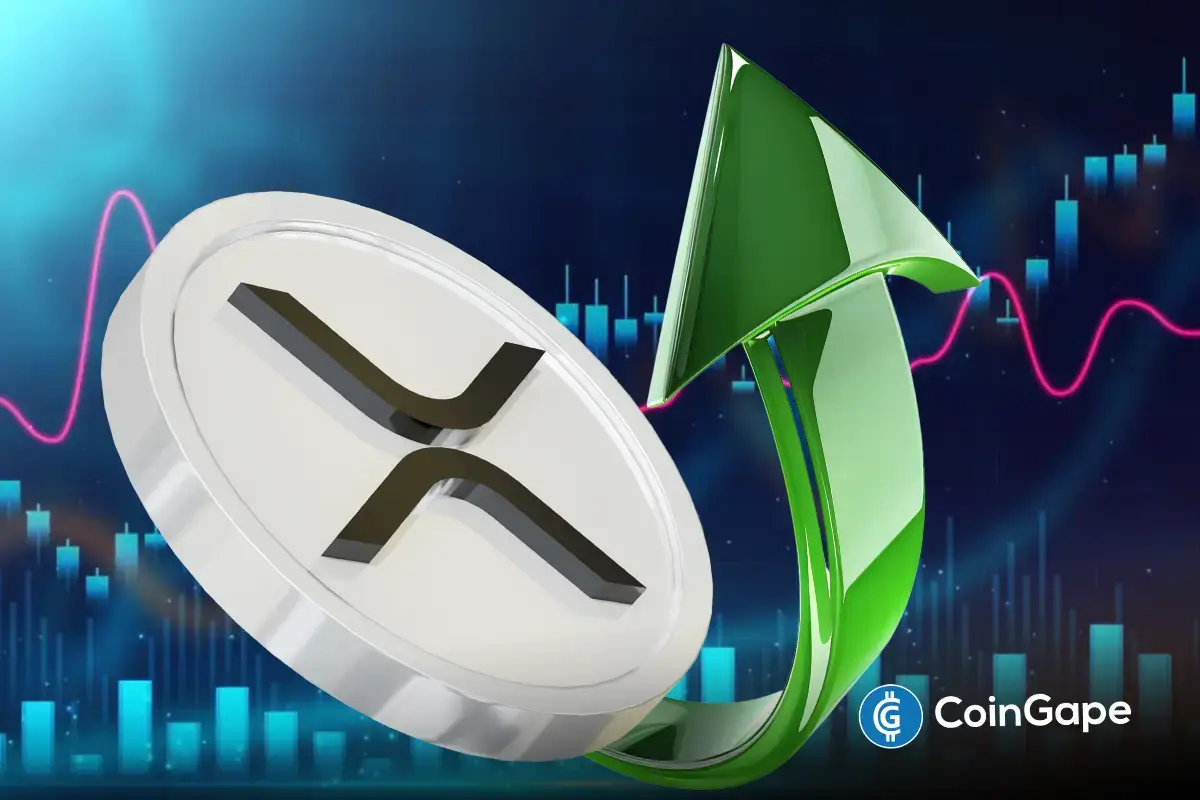Market
Former CFTC Chair Flags Risks in Trump’s Crypto Ventures
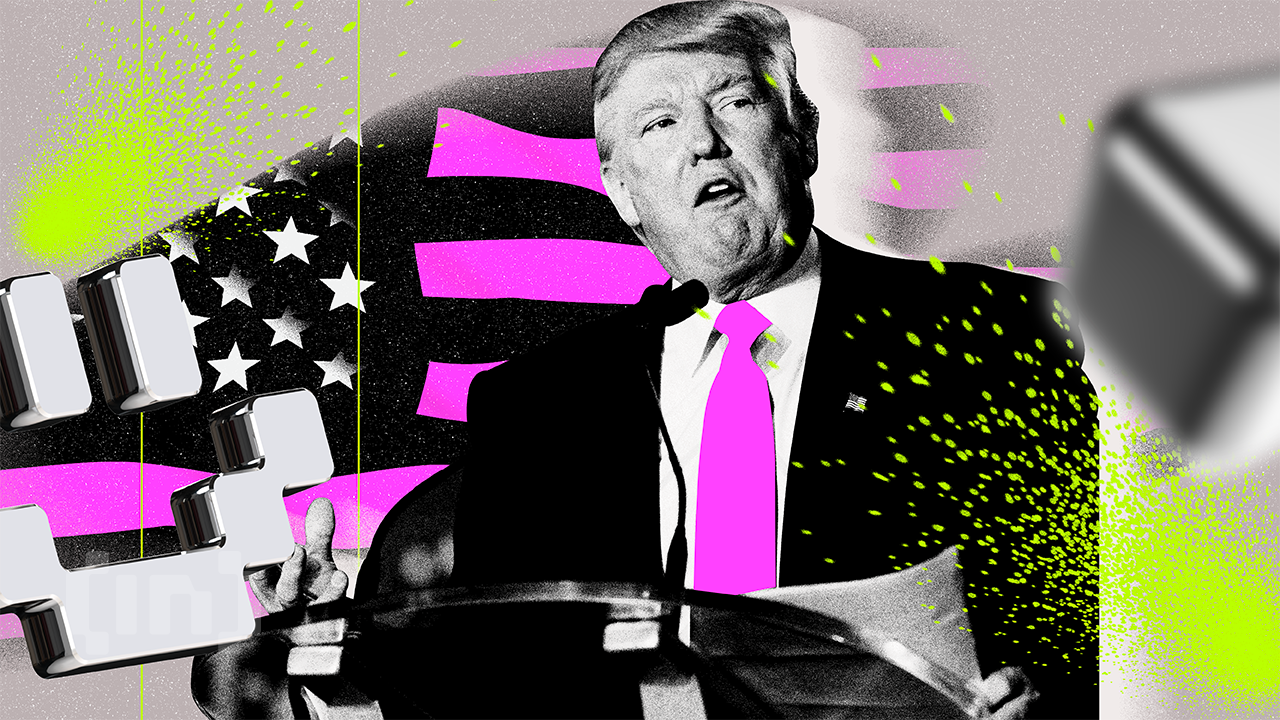
In an exclusive interview with BeInCrypto, former US CFTC Commissioner Timothy Massad explains how President Trump’s crypto ventures and political power have significantly overlapped in his first two months at the White House.
Shortly before assuming office for the second time, US President Donald Trump dove head-first into a flurry of crypto experiments. From endorsing World Liberty Financial (WLFI) to launching his meme coin, Trump is raising serious concerns over conflicts of interest. Tim Massad, the 12th CFTC Chairman, who served under Barack Obama, shares his thoughts.
A Historic President For Many Reasons
Before assuming his first term in office in 2016, President Trump broke with modern precedent by departing from established conflict-of-interest norms. A real estate mogul with a trademark for a last name, Trump would be entering the Oval Office as the leader of a multi-billion dollar empire.
While former presidents like Jimmy Carter and George W. Bush took measures to separate themselves from their businesses by placing their assets in a blind trust, the sitting President took a different approach.
Instead, Trump handed day-to-day management decisions over to his sons but did not divest in his ownership stake.
Though he received much backlash during his first term over conflict of interest concerns, Trump refused to relinquish ownership of the Trump Organization before assuming office for the second time.
However, the ‘conflict of interest’ has reached a new level this time, compared to 2016. Today, his ventures extend far beyond real estate. Trump has now secured a significant footing in the crypto industry.
Given Trump’s favorable stance toward digital asset policy development, players inside and outside the industry have begun to wonder whether his decisions are based on the sector’s best interests or are designed to benefit his own ventures.
How Deep is Trump’s Involvement in World Liberty Financial?
Though Trump does not have a direct role in WLFI, he appears on the whitepaper’s list of supporting teams as “Chief Crypto Advocate.” His three sons, Eric, Donald Jr., and Barron, are also on the list.
Reports further unveiled that the Trump family holds a 75% stake in the platform’s net revenue and a 60% stake in the holding company. At the same time, Trump and his associates own 22.5 billion of the company’s tokens.
For former CFTC Commissioner Tim Massad, despite Trump’s informal role in WLF’s governance, his stake in the platform’s performance raises serious conflicts of interest.
“I think it’s unprecedented and plainly wrong for a President of the United States to engage in commercial ventures or have his family and associates engage in commercial ventures that can be directly influenced by the policies he adopts as President or the statements he makes about those policies,” Massad told BeInCrypto.
Meanwhile, the tokens themselves are non-transferrable, limiting financial flexibility. Though the project aims to provide token holders access to a range of DeFi-related products and services, it has yet to launch them. In the meantime, token holders will have to wait until the time comes to use their tokens.
“I have yet to see any real business case or utility that’s of value to people who invest. So I think it all just has a character of taking advantage of people,” Massad added.
The industry has also grown weary over how WLF and other Trump-endorsed projects could be used to gain the President’s favor.
Industry Leaders Voice Concerns Over World Liberty Financial’s Legitimacy
Shortly before Trump launched World Liberty Financial, many prominent figures in the crypto sector warned that the project could cause Trump further legal troubles. Meanwhile, Alex Miller, CEO of Web3 platform Hiro, described the project as an “obvious pump scheme.”
Meanwhile, Alex Miller, CEO of Web3 platform Hiro, described the project as an “obvious pump scheme.”
Other industry leaders, such as Mark Cuban, Max Keiser, and Anthony Scaramucci, also criticized Trump’s decision to proceed with WLF’s token sales. Trump’s involvement in the project heightened fears that crypto’s fragile public image and controversial reputation would be smeared further.
Massad agreed with this last point, adding that crypto policy development is alive and well today more than ever. The ongoing development of stablecoin regulations, open talks of a national crypto strategic reserve, and a Senate-driven digital asset working group are only some of the current institutional initiatives.
“He, the Trump Organization and his family members should not be engaging in commercial ventures that pose such blatant conflicts of interest, given the fact that crypto regulation and things like a potential Bitcoin reserve are important policy issues today. A US president shouldn’t be engaging in these things at all, in my view,” Massad said.
Since the project’s launch six months ago, several examples validating these concerns have emerged. The most notable one has focused on Tron founder Justin Sun.
Justin Sun’s Controversial Investment in WLFI
TRON founder Justin Sun became World Liberty Financial’s largest investor in November after buying $30 million worth of WLF tokens.
The move was highly controversial. Despite Trump’s endorsement, WLFI struggled to meet its $30 million fundraising target during its first public sale. The token’s availability was restricted, excluding general trading and limiting purchases to non-US and accredited US investors.
Sun’s investment turned WLFI’s luck around. Soon after that, he also became one of the project’s advisors. Then, on the day of Trump’s inauguration, Sun invested an additional $45 million in the project, bringing the total sum to $75 million.
This investment brought varying degrees of scrutiny. While some questioned his quick transition from investor to advisor, others pointed to Sun’s past as a potential motive for his contributions.
In March 2023, the SEC filed fraud charges and other securities law violations against Sun and his companies. This regulatory baggage has led some industry leaders to question the wisdom of his association with World Liberty Financial.
Meanwhile, Tron’s price soared following Sun’s latest WLF investment. Tron, which had been experiencing lagging prices up until that point, was able to jumpstart its trading activities.

However, these conflicts of interest are not just limited to Sun’s investment.
Potential Binance Stake and Further Conflicts
Less than two weeks ago, reports surfaced that the Trump family had held talks to acquire a financial stake in Binance’s US division. Though Binance’s founder, Changpeng Zhao, discredited these reports, flirting with the theory comes easily.
Zhao could also benefit from an agreement. In 2023, he pleaded guilty to federal charges for failing to implement adequate anti-money-laundering measures at Binance.
Following his plea, Zhao resigned as Binance’s CEO. Motive-driven speculations point toward the possibility of a potential presidential pardon.
For Massad, maneuvers like these are natural when a president directly involves himself in crypto ventures.
“I think there is a huge risk of conflicts of interest and corruption by virtue of the President and people associated with him selling crypto assets—whether that’s through World Liberty Financial or the meme coins. It creates the potential for ongoing conflicts, because people who might want to curry favor with the administration could buy the coins,” Massad told BeInCrypto.
All the while, Trump benefits his crypto ventures every time he makes a pro-crypto announcement.
Is Trump Manipulating the Crypto Market?
A week into March, Trump signed an executive order to establish a Crypto Strategic Reserve and a US Digital Asset Stockpile. In his original announcement, Trump said the reserve would include Bitcoin, Ethereum, and altcoins like XRP, ADA, and SOL.
The crypto market responded immediately, with all five cryptocurrencies posting strong gains. Yet, Trump’s announcement quickly raised concerns over potential market manipulation.
With Bitcoin, Ethereum, and XRP in its treasury, WLF’s holdings grew in value as those assets appreciated. This growth could have boosted investor confidence, leading to higher demand for WLF tokens.
The crypto market’s overall surge and attention to Trump-related projects also generated greater investor interest in WLF, contributing to its price appreciation.
Meanwhile, Trump’s meme coin surged following the President’s reserve announcement. While TRUMP’s price stood at $13.55, with a trading volume of almost $1.2 billion on March 2, those numbers surged to $17.46 and $3.6 billion, respectively, following the news a day later.

On March 4, TRUMP’s price and trading volume plummeted below the numbers they registered only two days earlier.
“I think the meme coins have looked like a classic pump-and-dump scheme or money grab. I don’t think the issue should be, why not let people invest in these things if they want to? Of course they should have the right to invest in whatever they want. The issue is the propriety of the President of the United States selling things that capitalize on his being the President,” said Massad.
Even Ethereum Co-Founder Vitalik Buterin touched on the damaging effects of political meme coins in a social media post published five days after TRUMP’s launch.
“Now is the time to talk about the fact that large-scale political coins cross a further line: they are not just sources of fun, whose harm is at most contained to mistakes made by voluntary participants, they are vehicles for unlimited political bribery, including from foreign nation states,” Buterin said.
Given Trump’s active participation in the crypto industry over the past several months, a vital question remains: Why hasn’t Trump been held accountable over these apparent conflicts of interest?
The answer remains short and bitter: He can’t be.
Can Trump Be Held Accountable?
The potential conflicts of interest arising from Donald Trump’s involvement in the cryptocurrency industry have drawn the attention of various political figures, particularly those focused on government ethics and oversight.
US Senator Elizabeth Warren has been the most vocal opponent of Trump’s dealings in the crypto industry.
A day before the White House Digital Assets Summit, Warren sent an extensive letter to Trump’s crypto czar, David Sacks.
“I write today to request information about how you, as President Trump’s ‘Crypto Czar,’ have addressed your conflicts of interest, and how you will prevent the President and other private individuals from directly profiting off of the Trump Administration’s efforts to selectively pump the value of certain crypto assets, drop crypto asset-related enforcement actions, and deregulate the crypto asset industry. These actions have the potential to benefit billionaire investors, Trump Administration insiders, and speculators at the expense of middle-class families,” Elizabeth Warren wrote.
However, not much else can be done beyond letters that demand responses and clarifications from the Trump administration.
The Legal Loophole
US Presidents are largely exempted from conflict of interest provisions. This exemption has been based on legal interpretations that argue these laws could impede the President’s ability to fulfill their constitutional duties.
“The problem is, the POTUS is not subject to the conflict-of-interest laws that apply to most other executive branch officeholders. There is the Foreign Emoluments Clause in the Constitution, which prohibits accepting gifts from foreign countries. There’s also a domestic clause that prohibits accepting gifts from the government. But beyond that, he’s not subject to the usual conflict-of-interest standards. So, it’s unfortunate that we don’t have those standards applicable to a president. I think, had any other president done these things, there would be far more outrage,” Massad told BeInCrypto.
Given the legal circumstances, public scrutiny and political pressure are the best ways to hold a president accountable for potential conflicts of interest.
Yet, despite the legal exemptions for sitting presidents, the ethical implications of Trump’s crypto dealings remain undeniable.
As the lines between political power and personal profit continue to blur, the necessity for clear ethical standards, even without legal mandates, becomes increasingly urgent.
Failing to do so might erode public trust in the crypto industry, generating potentially irreversible consequences.
Disclaimer
Following the Trust Project guidelines, this feature article presents opinions and perspectives from industry experts or individuals. BeInCrypto is dedicated to transparent reporting, but the views expressed in this article do not necessarily reflect those of BeInCrypto or its staff. Readers should verify information independently and consult with a professional before making decisions based on this content. Please note that our Terms and Conditions, Privacy Policy, and Disclaimers have been updated.
Market
Dark Web Criminals Are Selling Binance and Gemini User Data

More than 100,000 users of popular crypto exchanges Binance and Gemini may be at risk after a trove of sensitive information appeared for sale on the dark web.
The leaked data reportedly includes full names, email addresses, phone numbers, and location details—raising alarms over growing cyber threats in the crypto sector.
Dark Web Actors Are Targeting Crypto Users
On March 27, a dark web user operating under the alias AKM69 listed a large database allegedly tied to Gemini, one of the largest crypto trading platforms in the US.
According to Dark Web Informer, the dataset mainly includes information about users from the United States, with a few entries from Singapore and the United Kingdom. The attacker claims the data could be used for marketing, fraud, or crypto recovery scams.
“The database for sale reportedly includes 100,000 records, each containing full names, emails, phone numbers, and location data of individuals from the United States and a few entries from Singapore and the UK,” the report stated.
It is unclear whether the leak resulted from a direct breach of Gemini’s systems or from other vulnerabilities, such as compromised user accounts or phishing campaigns.
Meanwhile, this incident followed another alarming listing on March 26.
According to the report, a separate dark web actor, kiki88888, allegedly offered a trove of Binance user data for sale. The database is said to hold over 132,000 entries, including the exchange users’ login information.

The Dark Web Informer suggests phishing attacks likely caused the breach rather than a compromise of the exchange’s systems.
“Some of you really need to stop clicking random stuff,” the Informer stated.
Binance and Gemini have yet to publicly comment on these incidents. However, phishing remains one of the most effective methods cybercriminals use to exploit crypto holders.
Scammers often impersonate official accounts or place misleading ads that redirect users to fake websites. Coinbase users are also being extensively targeted through phishing campaigns.
As BeInCrypto reported earlier, in March, Coinbase users lost over $46 million to social engineering scams.
Blockchain security firm Scam Sniffer revealed that phishing-related losses exceeded $15 million in the first two months of the year. This figure highlights the growing scale of the threat.
Given the rising threats, crypto users should stay vigilant and avoid unfamiliar links. They should also protect their accounts with two-factor authentication and hardware wallets whenever possible.
Disclaimer
In adherence to the Trust Project guidelines, BeInCrypto is committed to unbiased, transparent reporting. This news article aims to provide accurate, timely information. However, readers are advised to verify facts independently and consult with a professional before making any decisions based on this content. Please note that our Terms and Conditions, Privacy Policy, and Disclaimers have been updated.
Market
South Carolina Could Spend 10% of Funds on Bitcoin Reserve
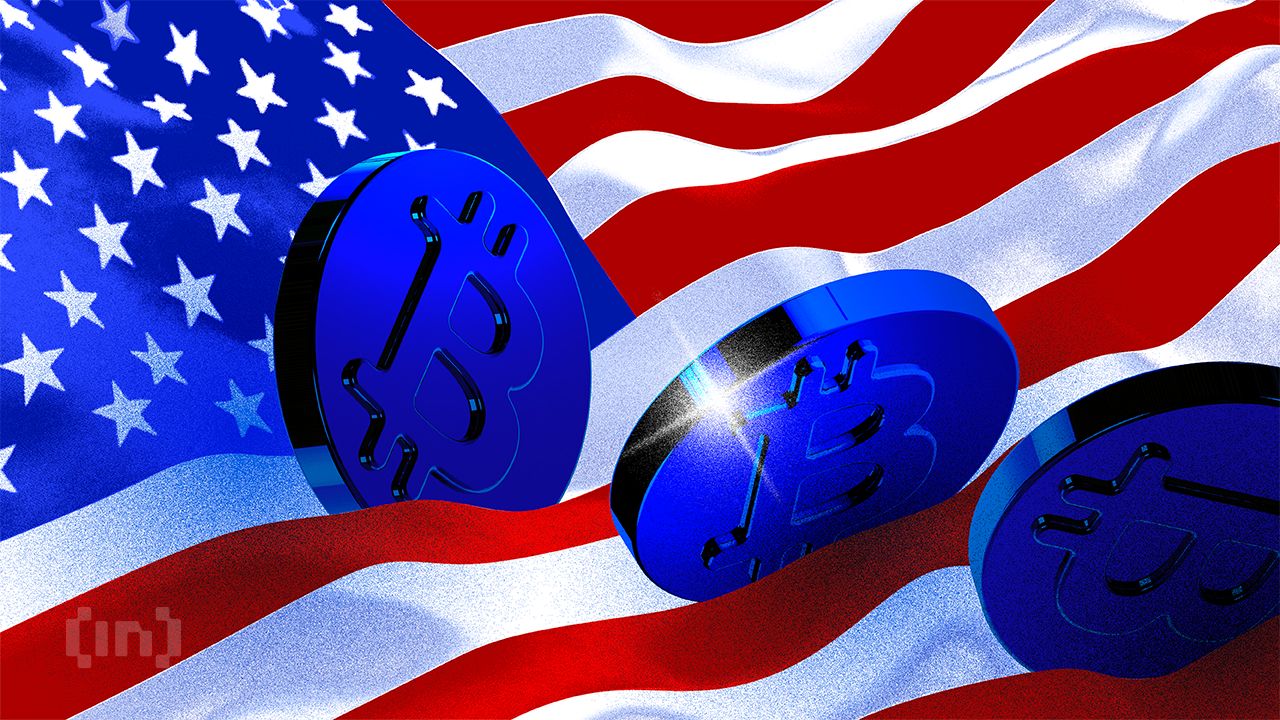
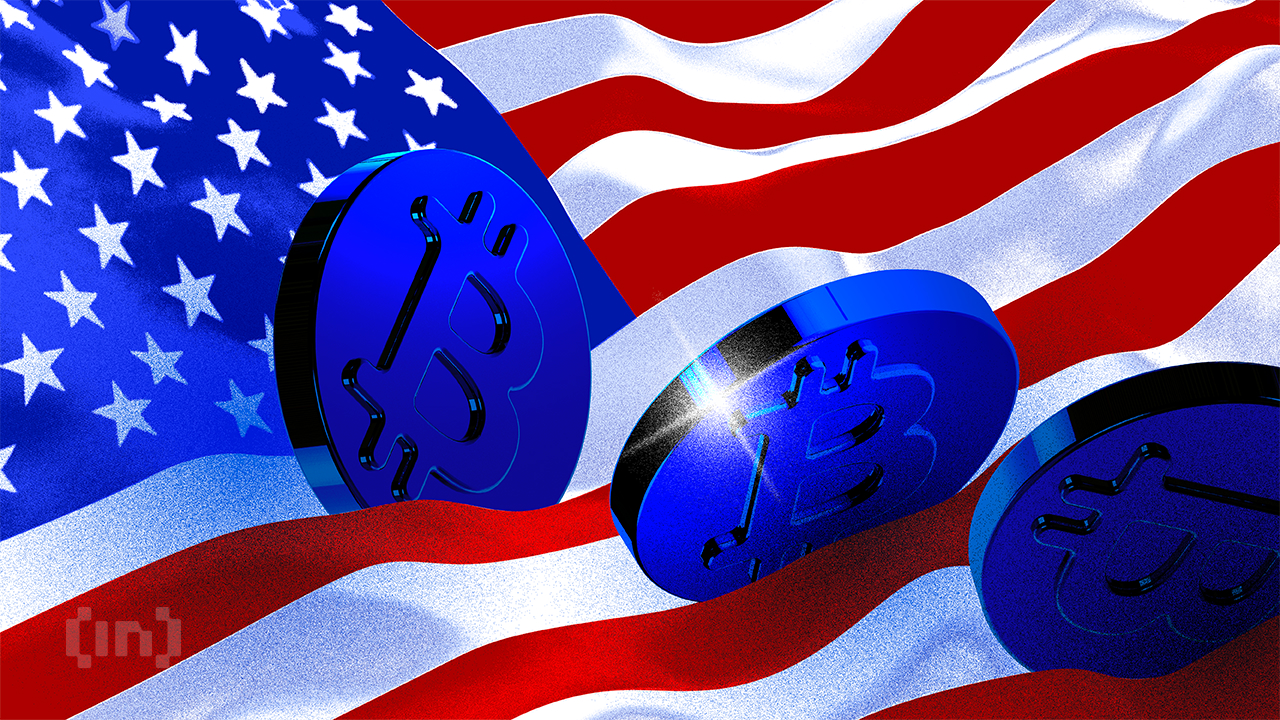
Representative Jordan Pace introduced legislation to create a Bitcoin Reserve for South Carolina, joining a nationwide effort. Currently, nearly half of all US states have an active bill to create a similar Reserve.
However, the talking point that this bill “allows 10% of state funds” in Bitcoin investments is taking off like wildfire. It may scare off fiscal conservatives, which contributed to recent failures.
South Carolina Joins the Bitcoin Reserve Race
Since President Trump announced his intention to create a US Bitcoin Reserve, many state governments have attempted to create smaller models.
In the last month, these efforts have been intensifying, with more and more states joining the effort. Today, South Carolina filed its own Bitcoin Reserve bill, allowing the state to make substantial purchases:
“The State Treasurer may invest in digital assets including, but not limited to, Bitcoin with money that is unexpended, unencumbered, or uncommitted. The amount of money that the State Treasurer may invest in digital assets from a fund specified in this section may not exceed ten precent of the total funds under management,” it reads.
State Representative Jordan Pace proposed South Carolina’s Bitcoin Reserve legislation. He claimed that this bill “gives the Treasurer new tools to protect taxpayer dollars from inflation,” one of crypto’s most well-known use cases. Pace is currently the bill’s only sponsor, and it’s unclear what chances it has of passing.
Still, there may be challenges ahead. Similar proposals in other Republican-led states—like Montana and Wyoming—have already failed. This was largely due to concerns over using public funds to buy cryptocurrency.
Even though Trump backs the idea on a national level, not all GOP lawmakers are convinced at the state level.
That said, there are some signs of progress elsewhere. For example, Texas has advanced its Bitcoin Reserve bill, achieving bipartisan support. A key reason for its success is that the bill doesn’t require the state to make crypto purchases; it simply allows them at the Treasurer’s discretion.
Likewise, South Carolina’s bill wouldn’t force the state to invest 10% of its funds into Bitcoin. It just opens the door for that possibility, giving the state financial flexibility rather than a mandate.
Disclaimer
In adherence to the Trust Project guidelines, BeInCrypto is committed to unbiased, transparent reporting. This news article aims to provide accurate, timely information. However, readers are advised to verify facts independently and consult with a professional before making any decisions based on this content. Please note that our Terms and Conditions, Privacy Policy, and Disclaimers have been updated.
Market
FDIC and CFTC Rescind Old Crypto Guidelines
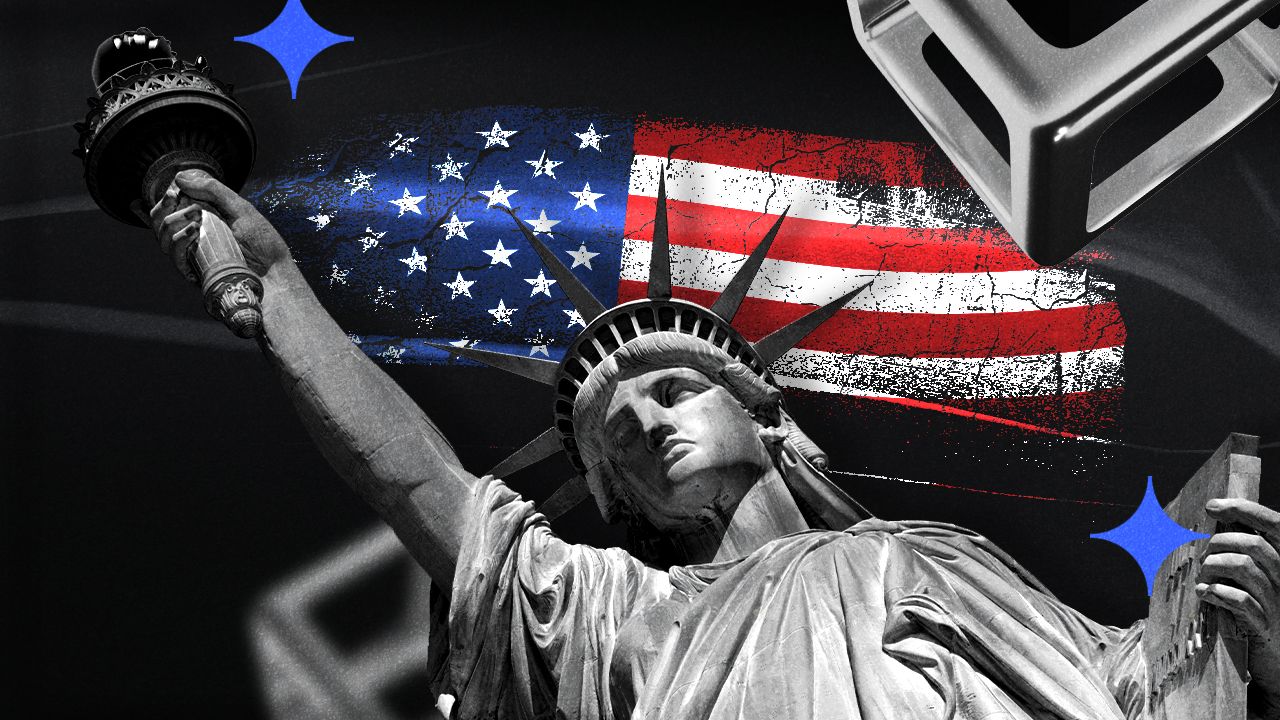
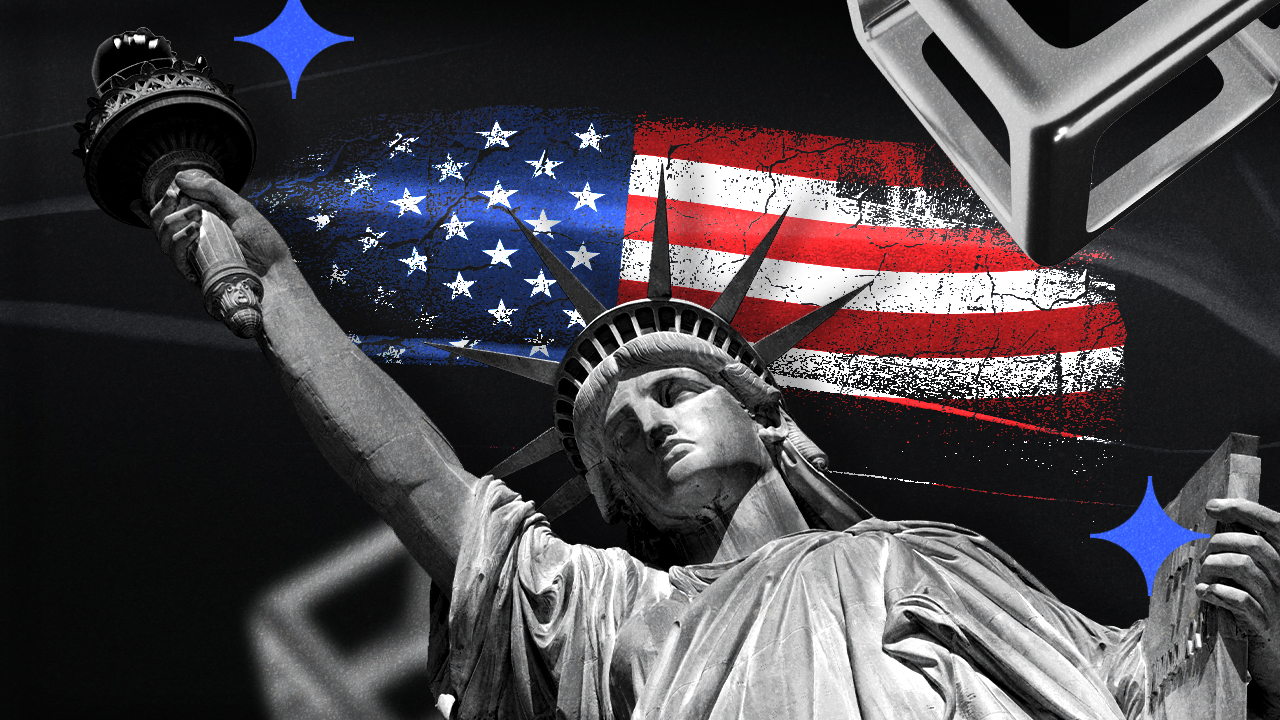
The FDIC and CFTC have both been working to change previous crypto guidelines. As federal regulators reconcile with the industry, they are removing old rules that specifically target crypto.
The former institution is removing the requirement that banks report crypto business, while the latter holds crypto to the same standards as other industries.
FDIC and CFTC Change Crypto Policies
The FDIC is one of the top financial regulators in the US, and it’s turning over a new leaf. After being one of the principal architects of Operation Choke Point 2.0, it recently began declassifying documents and changing rules that allowed crypto debanking.
Today, the agency is revoking a 2022 directive that impacted banks’ interactions with crypto:
“With today’s action, the FDIC is turning the page on the flawed approach of the past three years. I expect this to be one of several steps the FDIC will take to lay out a new approach for how banks can engage in crypto- and blockchain-related activities in accordance with safety and soundness standards,” said FDIC Acting Chairman Travis Hill.
Specifically, it rescinded a rule that mandated that all banks and institutions under its supervision notify the FDIC of any crypto involvement. The new guideline claims that banks “may engage in permissible crypto-related activities without receiving prior FDIC approval” without enacting any other policies.
Since Gary Gensler left the SEC, all the top US financial regulators have been trying to rework their relationship with crypto. In an apparent coincidence, the CFTC made a very similar move to the FDIC by rescinding two crypto guidelines.
Both of these actions did not establish a new policy; they merely removed the old ones.
Essentially, both of the CFTC’s rule changes are set to ensure that crypto-related derivatives are subject to the same requirements as non-crypto ones. This is somewhat surprising, considering that the industry has typically tried to insist that it necessitates specific regulations.
However, this is largely beside the point. The FDIC and CFTC are both working to remove previous guidelines that opposed the crypto industry.
These institutions will undoubtedly be amenable to creating new ones in the spirit of cooperation. In the meantime, this olive branch can help build a lot of goodwill.
Disclaimer
In adherence to the Trust Project guidelines, BeInCrypto is committed to unbiased, transparent reporting. This news article aims to provide accurate, timely information. However, readers are advised to verify facts independently and consult with a professional before making any decisions based on this content. Please note that our Terms and Conditions, Privacy Policy, and Disclaimers have been updated.
-

 Altcoin22 hours ago
Altcoin22 hours agoDogecoin Price Set To Reach $1 As Once In A Year Buy Opportunity Returns
-

 Regulation18 hours ago
Regulation18 hours agoSonic Labs To Abandon Plans For Algorithmic USD Stablecoin, Here’s Why
-

 Market22 hours ago
Market22 hours agoAnalysts Reveal Q2 Crypto Market Outlook: BTC at $200,000?
-

 Market17 hours ago
Market17 hours agoCoinbase Users Lost $46 Million to Crypto Scams in March
-

 Altcoin17 hours ago
Altcoin17 hours agoPiDaoSwap, Trump Media, & Grayscale
-
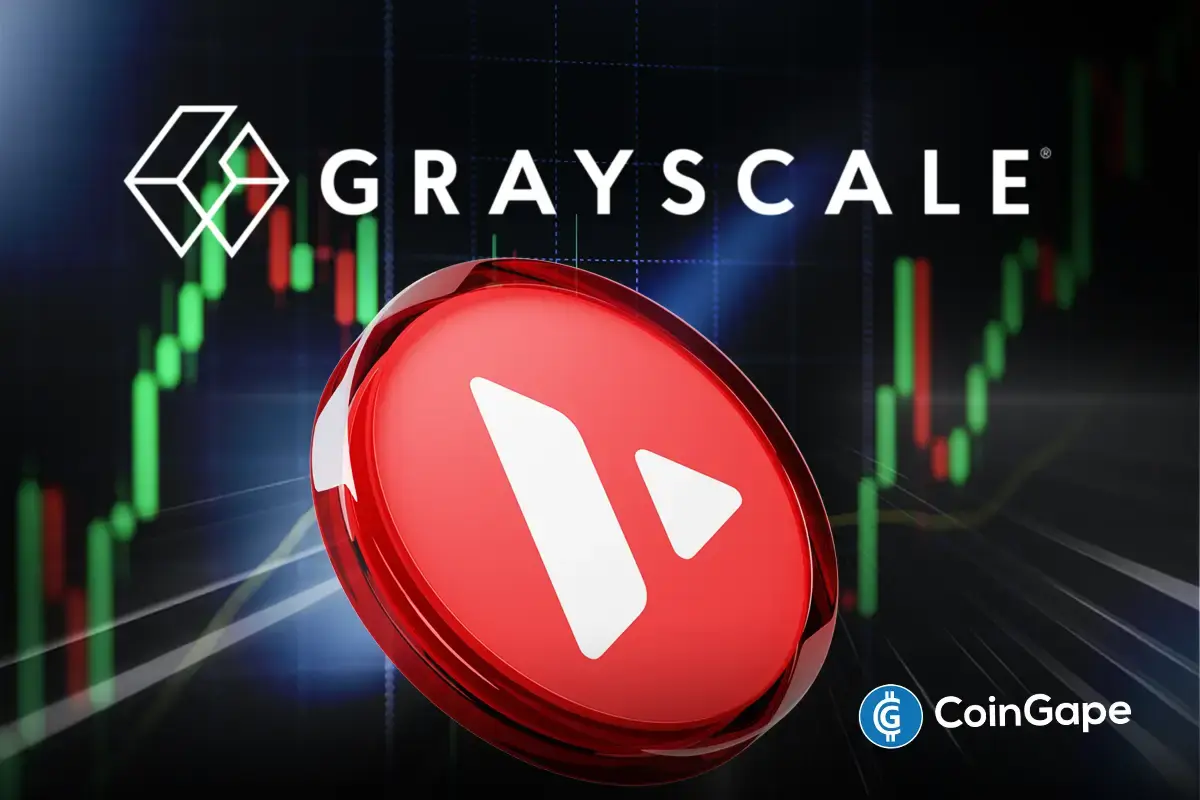
 Regulation22 hours ago
Regulation22 hours agoAVAX Price Eyes Rally To $44 As Grayscale Files For Avalanche ETF
-

 Regulation17 hours ago
Regulation17 hours agoUS SEC Drops Charges Against Hawk Tuah Girl Hailey Welch
-

 Market24 hours ago
Market24 hours agoHedera Falls 4% as Bears Dominate: What’s Next for HBAR?







